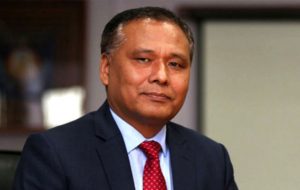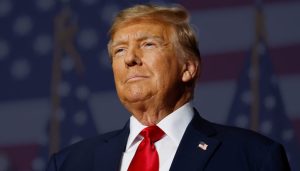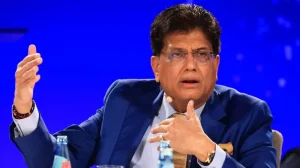U.S. President Donald Trump has disclosed that he has given authorization to the Central Intelligence Agency (CIA) to carry out operations in Venezuela. In recent weeks, the U.S. military has reportedly attacked boats transporting narcotics from Venezuela to the United States, killing 27 people.
Speaking to reporters on Wednesday, Trump said he had permitted the CIA to take action against drug traffickers operating inside Venezuela. Although Washington claims the operation is aimed at targeting drug networks, it has long been accused of seeking to overthrow Venezuelan President Nicolás Maduro.
When asked by journalists whether he had also authorized the CIA to assassinate Maduro, Trump replied, “That’s a ridiculous question. Actually, it’s not a ridiculous question — but it would be ridiculous for me to answer it, wouldn’t it?”
Speculation that Trump was planning to topple Maduro intensified after he deployed powerful submarines and warships to the southern Caribbean at the end of August. Trump sent seven warships and a nuclear-powered submarine carrying more than 4,500 American troops to the region.
Venezuela lies very close to the southern Caribbean, and such a large display of American military strength in the area has alarmed Maduro. He reportedly fears that Trump may use force to remove him from power.
Many analysts believe that the U.S. does not need such a large military presence merely to target drug traffickers, fueling suspicions that the move is politically motivated. In August, the U.S. government doubled the reward for information leading to Maduro’s arrest — from $25 million to $50 million — alleging his involvement in drug trafficking.
Since beginning his second term, Trump has designated nine Latin American drug cartels as foreign terrorist organizations, two of which are based in Venezuela. According to The Wall Street Journal, one of them operates under Maduro’s direct supervision.
Historical Parallels and Regional Implications
Given these circumstances, experts say Trump may have sent a large military force and warships to the region in an effort to destabilize Maduro’s rule — or perhaps to pressure him into fleeing the country.
Now that Maduro has refused to leave, Trump’s latest revelation — that the CIA has been authorized to strike targets inside Venezuela — may be an attempt to instill fear within his regime.
The move also recalls America’s past interventions in Latin America.
In 1989, under President George H. W. Bush, the U.S. invaded Panama to overthrow military ruler General Manuel Noriega, who, like Maduro, faced charges of drug trafficking and money laundering.
Similarly, during President John F. Kennedy’s administration, the CIA organized the 1961 Bay of Pigs invasion in an attempt to overthrow Cuba’s Fidel Castro. Kennedy had ordered that no official U.S. military personnel be used, so the CIA mobilized Cuban exiles instead.
The invasion failed, strengthening Castro’s grip on power and extending his rule for decades. Analysts believe Trump’s latest disclosure may signal a similar covert effort — one that could once again reshape U.S. relations with Latin America.





